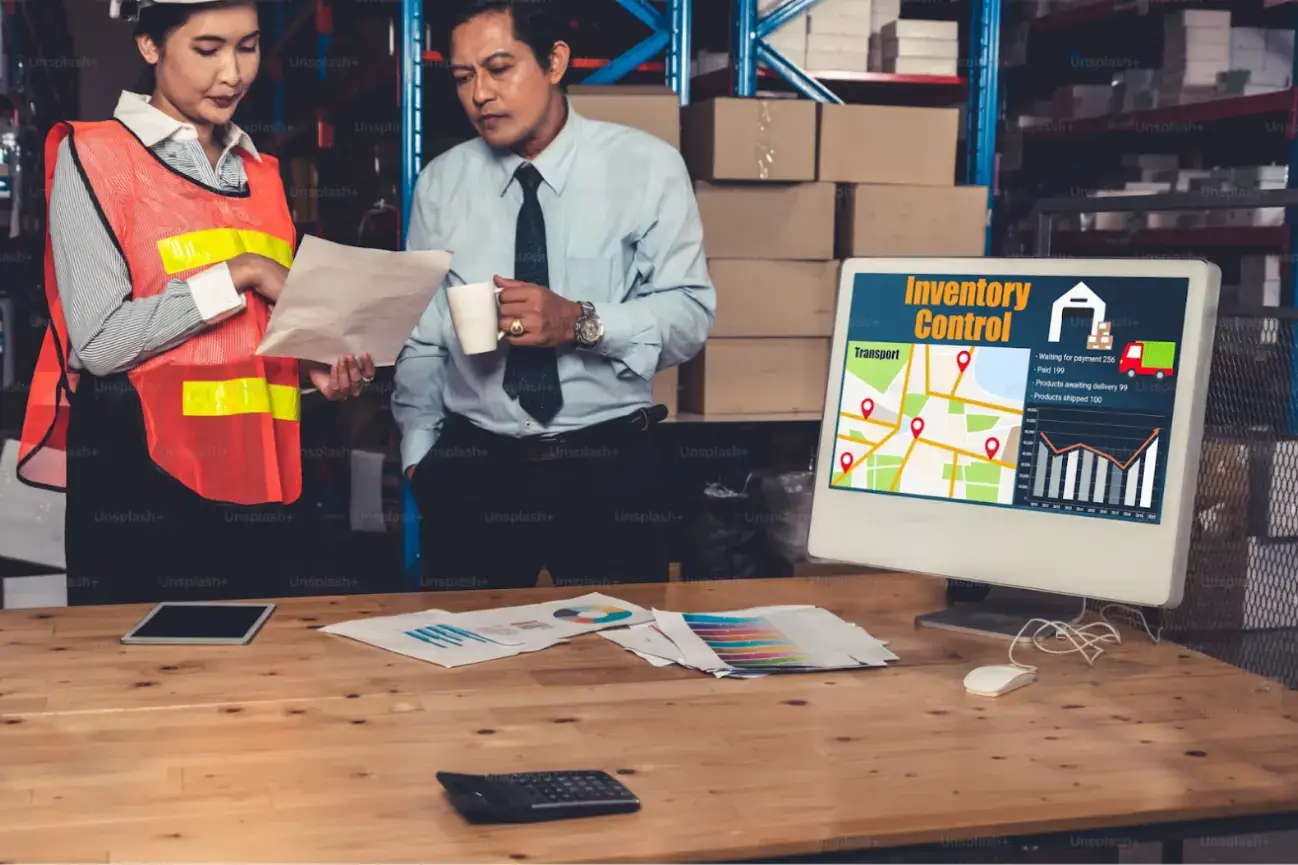In today's fast-paced retail landscape, businesses are constantly seeking ways to stay ahead of the competition and meet the ever-changing demands of consumers.
One of the most significant ways they are achieving this is through the implementation of innovative software solutions.
These software systems are revolutionizing retail management by streamlining processes, enhancing customer experiences, and ultimately driving growth.
In this article, we'll explore the evolution of retail management systems, the need for innovation in the retail industry, and the pivotal role that software plays in transforming retail management.
In this article:
- Evolution of Retail Management Systems
- The Need for Innovation in Retail Management
- Role of Software in Revolutionizing Retail Management
- Key Features and Capabilities of Innovative Retail Management Software
- Benefits and Impacts of Revolutionizing Retail Management through Software
- Future Trends and Challenges in Retail Management Software Development

Source: Unsplash
Evolution of Retail Management Systems
Retail management has come a long way from the days of manual inventory tracking and handwritten receipts.
In the past, retailers relied on paper-based systems and spreadsheets to manage their operations, which were often time-consuming and error-prone.
However, with technological advancements, the retail industry has undergone a significant transformation.
ECRs allowed for faster checkout times and more accurate inventory tracking, laying the groundwork for more sophisticated retail management systems to come.
In the 1990s and early 2000s, the rise of point-of-sale (POS) systems further streamlined retail operations.
These systems integrated sales, inventory, and customer data into a single platform, enabling retailers to make more informed business decisions and provide better customer service.
Today, retailers have access to a wide array of technology solutions, including those offered by a reputable retail software company, which continue to enhance efficiency and productivity in the industry.
The Need for Innovation in Retail Management
As consumer expectations continue to evolve, retailers face increasing pressure to adapt and innovate.
Today's consumers demand personalized shopping experiences, seamless omnichannel interactions, and instant gratification.
To meet these demands, retailers must embrace technology and implement innovative solutions across all aspects of their business.
Moreover, the retail landscape is becoming increasingly competitive, with e-commerce giants like Amazon dominating the market.
To compete effectively, traditional brick-and-mortar retailers must leverage technology to optimize their operations, improve efficiency, and drive sales.
Role of Software in Revolutionizing Retail Management

Source: Unsplash
Software plays a pivotal role in revolutionizing retail management by providing retailers with the tools they need to succeed in today's digital age.
From inventory management and sales tracking to customer relationship management (CRM) and analytics, innovative software solutions offer a wide range of benefits for retailers.
Let's explore some of the key ways software is transforming retail management:
Streamlined operations
One of the primary benefits of retail management software is its ability to streamline operations.
This not only improves efficiency but also reduces the risk of human error, leading to greater accuracy and reliability in day-to-day operations.
Enhanced customer experiences
In today's hyper-competitive retail landscape, providing exceptional customer experiences is crucial for success.
Retail management software enables retailers to understand their customers' preferences and behavior better, allowing them to personalize interactions and offer targeted promotions.
Whether through loyalty programs, personalized recommendations, or seamless omnichannel experiences, innovative software solutions empower retailers to deliver the level of service that modern consumers expect.
Data-driven decision making

Source: Unsplash
Data is the lifeblood of modern retail, and retail management software provides retailers with access to valuable insights and analytics.
By tracking key performance indicators (KPIs) such as sales trends, inventory turnover, and customer satisfaction metrics, retailers can make more informed business decisions and identify growth opportunities.
Whether it's optimizing product assortments, adjusting pricing strategies, or identifying new market trends, data-driven decision-making is essential for staying ahead of the competition.
Omnichannel integration
With the rise of e-commerce and mobile shopping, retailers must offer a seamless omnichannel experience to meet the needs of today's connected consumers.
Whether a customer is browsing products in-store, shopping online, or interacting with a mobile app, omnichannel integration ensures a consistent brand experience and increases customer satisfaction.
Scalability and flexibility
As retailers grow and evolve, they need software solutions that can scale with their business and adapt to changing needs.
Retail management software offers scalability and flexibility, allowing retailers to add new features, expand into new markets, and accommodate increasing transaction volumes.
You can use product management software to align teams, streamline product updates, and ensure every new feature scales smoothly with your growing retail ecosystem.
Whether it's opening new store locations, launching a mobile app, or expanding into international markets, innovative software solutions provide the agility and scalability retailers need to succeed in today's dynamic retail landscape.
Key Features and Capabilities of Innovative Retail Management Software
Modern retail management software encompasses a wide range of features and capabilities designed to meet the unique needs of retailers across various industries.
Here are some key features that are revolutionizing the retail management landscape:
Inventory Management: Efficient inventory management is crucial for retailers to ensure they have the right products in stock at the right time.
Innovative software solutions utilize advanced algorithms and predictive analytics to optimize inventory levels, minimize stockouts, and reduce carrying costs.
Point-of-Sale (POS) Systems: POS systems have evolved significantly in recent years, offering retailers robust functionality beyond simple transaction processing.
Today's POS software can track sales in real-time, manage customer data, and facilitate omnichannel sales across multiple platforms.
Customer Relationship Management (CRM): Building and maintaining strong customer relationships is essential for long-term success in retail.
CRM features integrated into retail management software allow retailers to track customer interactions, personalize marketing efforts, and provide exceptional customer service.
Data Analytics: Data-driven insights are invaluable for retailers seeking to understand customer behavior, identify trends, and make informed business decisions.
Advanced analytics tools embedded within retail management software enable retailers to analyze sales data, track performance metrics, and uncover actionable insights.
Supply Chain Management: Effective supply chain management is critical for ensuring products are sourced, produced, and delivered efficiently.
Retail management software often includes features for managing suppliers, tracking shipments, and optimizing logistics to streamline the supply chain process.
Benefits and Impacts of Revolutionizing Retail Management through Software

Source: Unsplash
The adoption of innovative retail management software has had a profound impact on the retail industry, offering a multitude of benefits for both retailers and consumers alike:
Improved Efficiency: By automating routine tasks and streamlining processes, retail management software enables retailers to operate more efficiently, freeing up time and resources to focus on strategic initiatives.
Enhanced Customer Experience: Retailers can leverage software to personalize customer interactions, deliver targeted promotions, and provide seamless shopping experiences across online and offline channels.
Increased Sales and Revenue: By optimizing inventory levels, improving product availability, and targeting the right customers with relevant offers, retailers can drive incremental sales and revenue growth.
Better Decision-Making: With access to real-time data and actionable insights, retailers can make more informed decisions about pricing, merchandising, and marketing strategies, leading to improved business outcomes.
Competitive Advantage: Retailers that embrace innovative software solutions gain a competitive edge, positioning themselves for long-term success in an increasingly competitive landscape.
Future Trends and Challenges in Retail Management Software Development
Looking ahead, the future of retail management software promises continued innovation and evolution to meet the evolving needs of retailers and consumers. Some key trends and challenges to watch for include:
- Artificial Intelligence (AI) and Machine Learning: AI and machine learning technologies will play an increasingly important role in retail management software, enabling retailers to automate processes, personalize experiences, and make data-driven decisions with greater accuracy and efficiency.
- Omnichannel Integration: As consumers continue to demand seamless shopping experiences across multiple channels, retail management software will need to support omnichannel integration, allowing retailers to track and manage inventory, sales, and customer data across online and offline channels.
- Cybersecurity and Data Privacy: With the growing reliance on digital technologies, these will remain top concerns for retailers. Future software solutions will need robust security measures to protect sensitive customer and business data.
- Sustainability and Ethical Practices: Increasing consumer awareness around environmental and ethical practices will encourage retailers to prioritize sustainability. Retail management software may introduce tools to help track sustainability metrics, such as carbon footprints and supply chain transparency.
- Customization and Flexibility: As retail businesses vary widely in size, scale, and industry, future retail management software will need to offer greater customization and flexibility.
Conclusion
In conclusion, innovative retail management software is revolutionizing how retailers operate, providing powerful tools to streamline operations, enhance customer experiences, and drive growth.
By leveraging advanced features and capabilities, retailers can improve efficiency, increase sales, and gain a competitive advantage in the marketplace.
As technology continues to advance, the future of retail management software holds great promise for further innovation and evolution to meet the changing needs of both retailers and consumers.


